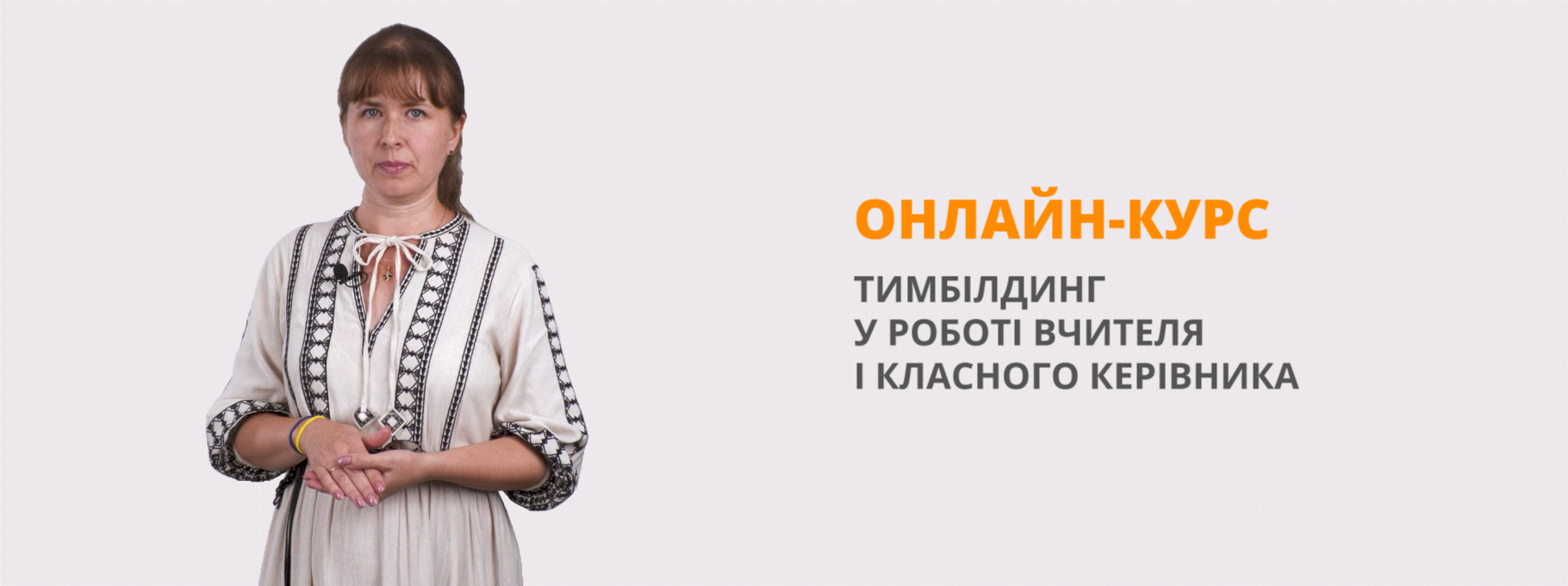Урок " Hobbies. Interests"
Урок в 5-му класі з теми « Hobbies. Interests»
Мета уроку:
- Створити комфортні умови для формування комунікативних навичок
учнів, життєвих компетенцій;
- Вдосконалювати навички усного монологічного та діалогічного
мовлення, читання та аудіювання;
- Навчити учнів вести розмову про свій вільний час та улюблені заняття;
- Вдосконалювати граматичні навички вживання часу Present Perfect Tense в усному та писемному мовленні;
- Розвивати пам’ять учнів,навички критичного мислення, мовну здогадку та уяву, пізнавальний інтерес та естетичне сприйняття середовища;
- Стимулювати бажання спілкуватися англійською, усвідомлену мотивацію у навчанні;
- Виховувати прагнення з користю проводити вільний час, збагачувати себе новими знаннями та життєвим досвідом;
- Виховувати вміння працювати в групах та в парах, почуття взаємодії та толерантного ставлення до співрозмовника.
Очікувані результати уроку:
На кінець уроку учні вміють
- правильно вживати ЛО з теми в лексико- граматичних
структурах, говорити про свої захоплення ;
- виділяти та запам’ятовувати інформацію при під час перегляду короткого відеофільму, аналізувати її, порівнювати та обирати необхідну, обґрунтовувати свою думку;
- спілкуватися в межах тематики , вести короткі діалоги- розпитування , читати тематичний текст і обговорювати його;
- застосовувати граматичні структури Present Perfect Tense в мовленні.
Оснащення уроку:
флеш- картки для індивідуальної роботи та для
роботи у групах, тематичний ілюстративний матеріал
https://www.youtube.com/watch?v=nddRGDEKxA0
https://www.youtube.com/watch?v=6NHkCRgmbUI
https://www.youtube.com/watch?v=tsrJ7w-Kq10
Тип уроку: комбінований ( урок застосування набутих знань та вдосконалення навичок
і вмінь)
Хід уроку
I. Організаційна частина уроку
Introduction.
- Привітання .
T: Good afternoon, pupils! I’m glad to see you! How are you today? Are you in a good mood?
Ps: We are united,
We are happy,
We are in a good mood,
We are ready to work!
T: I’m glad to hear you are in a good mood, so, let’s start working.
- Уведення в іншомовне середовище.
Перегляд відео. Пісня “What do you like to do?” та вгадати тему уроку.
https://www.youtube.com/watch?v=nddRGDEKxA0
3. Повідомлення теми і задач уроку.
T: Guess the topic of our lesson. Yes, you are right. What hobbies are mentioned in our song?
PP:(dancing,swimming,drawing,cooking,riding a bike,petting,running,painting,reading, skiing,palying hide’n seek,singing)
T: The topic of our lesson is “Hobbies and Interests”. Today we’re going to speak about our free time and what we like to do in our spare time. All of us have a lot of work every day and when we have some free time we try to devote them to something we’re interested in. So what interests do we have? What are we fond of?
Today at the lesson we are going to speak about interesting activity that we like to do in our free time. We’ll speak about hobbies, watch film, discuss it, we’ll work in small group and it will be surprise at the end of the lesson.
4. Фонетична розминка. Phonetic Drills (tongue twisters are in pupil’s vocabularies or teacher can write them on the blackboard)
T: Let’s start with your favorite tongue-twisters.
- I saw Susie doing shopping in a shiny shoe shop.
- Car Collector collected colorful coins.
- Darla is drawing dangerous dragons.
T: What hobbies are mentioned in these tongue twisters? (Pupils answers)
ІІ. Основна частина уроку.
The Main Part of the Lesson
Відео: Англійська мова урок 27 улюблені заняття 5 клас
- T: The motto of our lesson is “Tastes differ”. Different people like different things. Different people have different hobbies. And they say: our best friend is our hobby. What is the hobby? A hobby is something you like doing in your free time. Hobbies make your life more interesting. It’s very nice to have free tine. And what about you? Do you have free time? By the way, what is free time?
P1: Free time is a time when I don’t go to school and don’t do my homework.
P2: It’s when I can do everything I want.
P3: It’s time for my hobbies.
- T: There are a lot of hobbies in the world. What hobbies do you know?
Video- exercise “Hobbies vocabularies”
- Exercice “Match the words with their definitions”
T: Let’s say what we can do in our free time. Look at the blackboard and use the “Mind Map”
- Exercise “Magic sun”.
T:Draw a magic sun. We have the centre of our sun with a word , draw the rays and make word combination in your answer.
![]()
![]()
![]()




![]()
![]() to collect to play
to collect to play
P1: In my free time I like swimming and reading.
P2: On weekends I like fishing and cycling.
P3: In summer I like playing football with my friends.
- Phonetic exercises (revising the poem)
I like reading comic books.
I always read a lot.
I like collecting action toys.
Sometimes it’s hard to stop.
I like swimming for our team.
We win a lot of races.
I like singing, painting, drawing …
I like hiking in wild places.
I like to study every day.
I like to jump, I like to run,
I like to play, it’s fun!
- Revision of Grammar Constructions
T: What other constructions except like/dislike can we use when we speak about hobbies? (Checking Home task: pupils had to write their own sentences with these constructions)
Pupils answer:
… crazy about ….
… good at ….
… like ….
… fond of ….
… interested in ….
T: What do we use in all these constructions? (Gerund). What is Gerund? When do we use it? What features does it have? How do we translate it in Ukrainian?
- Activity “Translator”
T: I propose you to try your forces as translators. You have to translate into Ukrainian or English, using Gerund and words about hobbies.
|
I like reading books. |
Ти захоплюєшся малюванням. |
|
He likes playing football and basketball. |
Вона не любить грати в теніс. |
|
We are not interested in traveling. |
Я люблю співати, але не люблю танцювати. |
|
My grandmother is fond of gardening. |
Мій тато шаленіє від їзди на автомобілі. |
|
His brother does not like swimming in the river. |
У його сестри добре виходить грати в шахи. |
(Sentences are in the box, pupils take the sentences and translate them into opposite language)
T: Very good translators, you have done this task. Now imagine that you are detectives. Your task is to find mistakes in the sentence and correct it, explaining.
- Activity “Detectives” – correct the mistakes.
- My mom am fond of cooking. (is)
- I am crazy about ride a bike. (riding)
- Her sister like speaking English. (likes)
- Our granny is good on playing the piano. (at)
- My dad is interested of reading History books. (in)
- You am not good at volleyball. (are)
(Pupils work on the blackboard and in the copybooks)
T: What hobbies were mentioned in these sentences?( Pupils answer.)
- Revision of vocabulary
T: Look at pictures. There are different hobbies. Do you know them? All these hobbies can be divided into several groups: learning things, doing things, making things and collecting things. Let’s provide some examples.

- “Work in Chain ” – pupils one by one say the words on the cards, work in chain.
- Dialogues. Checking home task.
T: Your home task was to prepare the dialogues.
Dialogue 1.
P: Do you have a hobby ……?
P: Yes, I do. And what about you?
P: I have a hobby too.
P: What is your hobby?
P: My hobby is playing computer games. And you?
P: I like playing tennis, it`s my favourite hobby.
Dialogue 2
P: Have you got a hobby?
P: Yes, I have. And you? Have you got a hobby?
P: I enjoy collecting coins. I have a large collection of coins nearly about 250 coins. My father is a journalist, he brings them from different countries. And what do you like doing in your free time?
P: I like swimming. I go in for swimming for two years. I take part in competitions and I have 2 medals already. Besides, I like fishing.
Dialogue 3
P1:What do you do in your free time?
P2: I like swimming.
P1: Does your friend like swimming?
P2: No, he doesn’t. He can’t swim. He doesn’t like the sea.
P1: Do you play any music instruments?
P2: No, I don’t but my friend plays the guitar.
- Group work.
Card 1. People like to visit different cities, towns and historical places. Some people even visit other countries. They can travel by car, by plane, by train, by bus or on foot. This hobby helps them to learn history, geography and traditions of different people and countries.
Questions that pupils can ask:
- What hobby is it?
 - Why do people like to do it?
- Why do people like to do it?
- Where can people do it?
Group1: Travelling
 Card 2. People like to spend their free time near the rivers or lakes . They often go there with their friends or relatives. They can have a picnic there. They go usually there in summer but some people like to go there in winter too. Also they can boil fish broth (soup) after going there.
Card 2. People like to spend their free time near the rivers or lakes . They often go there with their friends or relatives. They can have a picnic there. They go usually there in summer but some people like to go there in winter too. Also they can boil fish broth (soup) after going there.
Questions:
- What hobby is it?
- Why do people like to do it?
- Where can people do it?
Group 2: Fishing
Card 3. (For the weakest group)
 It is a very beautiful and good kind of hobby. You can visit dancing club after lessons or dance at home. If you can dance well, you can show it at the disco, at the parties with your friends!
It is a very beautiful and good kind of hobby. You can visit dancing club after lessons or dance at home. If you can dance well, you can show it at the disco, at the parties with your friends!
Questions:
- What hobby is it?
- Why do people like to do it?
- Where can people do it?
Group 3: Dancing
T: What hobbies were mentioned? Are these words new for you?
- Активізація лексики.
T: I want you to listen to my stories. I shall describe different hobbies.Take the card № 1.You have combine the number of the text with the title of the hobby.
- Some people like to dance. Sometimes they go to the special clubs or dance at home. They like to go to a disco. – dancing
- I know some people who like to watch different kinds of programmers or films on TV. For example, children are usually fond of films about animals. – watching TV
- Some people like to visit different cities, towns and historical places. Some people even visit other countries. They can travel by car, by plane, by train, by bus or on foot. This hobby helps them to learn history, geography and traditions of different people and countries. – travelling
- People like to sing songs. Sometimes they go to music school. They like to listen to the songs and sing them. – singing
- People like to make new dishes. They often cook for the family and for their friends. They can present the food nicely and lay the table beautifully. They use spices (vinegar, oil, pepper, etc.) They can boil or fry meat, fish, chicken and make deserts. – cooking
- This hobby is interesting and useful. People try to find or buy different things such as stamps, badges, coins, pictures, dolls, etc. Their collections can be thematic. This hobby helps people to make new friends and to learn some new things about countries and lands, animals and birds, famous people and historical events. – collecting
- People like to go to the library. Some of them have a good collection of books at home. And they are really proud of it. They can have different books: fiction, historical novels, books about animals and birds, books about different countries. Their hobby helps them to relax, to learn the world and understand other people better. – reading
T: And now we’ll try to remember different kinds of hobbies. You’ll work with your neighbor. You have sheets of paper no your desks, write down as many kinds of hobbies as you know.
- Listening and Speaking.
Розвиток навичок аудіювання та мовлення (прийом «Мікрофон»)
Скайп. Телеміст. Watching Video (1:30)
https://www.youtube.com/watch?v=6NHkCRgmbUI (5)
https://www.youtube.com/watch?v=tsrJ7w-Kq10 (6) Cербія
Лунає сигнал Скайп зв’язку. https://www.youtube.com/watch?v=tGLg27Qj_pM Учні налаштовуються сприймати відеоматеріал та уявно спілкуватися з англомовними дітьми про власні улюблені справи. При перегляді відео учитель натискає на паузу, надаючи можливість учневі висловитися про свої уподобання, при цьому перевіряється чи зрозумів учень почуті висловлювання з відеоматеріалу.
- What is your hobby? My hobby is …
- What do you like? I like…
- What are you fond of? I am fond of…
- What are you interested in? I am interested in…
- What are you crazy about? I am crazy about…
III. The Final Part of the Lesson.
Заключна частина уроку.
- Homework
T: Write down your home-task
- To prepare a poster “My Favorite Activities and Hobbies” and to tell about them using 3 questions.
1. What is it?
2. Why do you like doing it?
3. Where can you do it?
- Feedback
T: So, we are finishing our lesson and I want to ask you some questions.
What was the theme of our lesson?
What hobbies can you mention?
What was difficult?
What was interesting?
Do you like/dislike our lesson? Why?
- Marks for the lesson.
T: Now let’s read the rhyme on the blackboard together
We’ve got a lot of hobbies
But we have a common one
English does attract us
And it is a great fun!
T: Our lesson is over, thank you. Good bye.


про публікацію авторської розробки
Додати розробку
